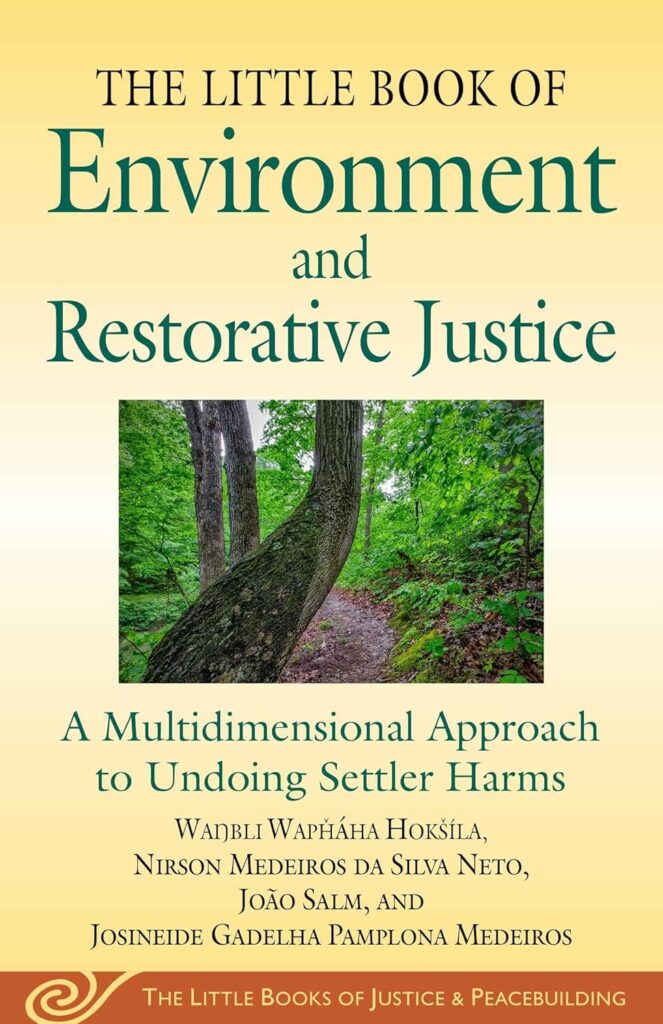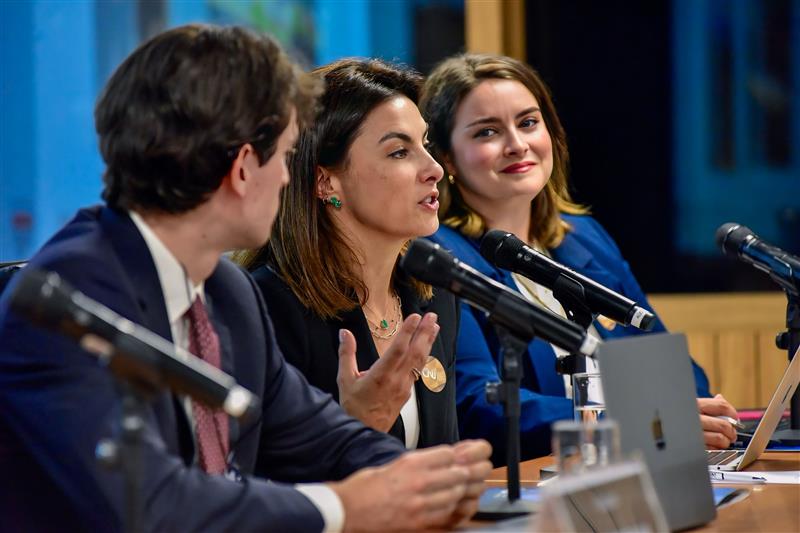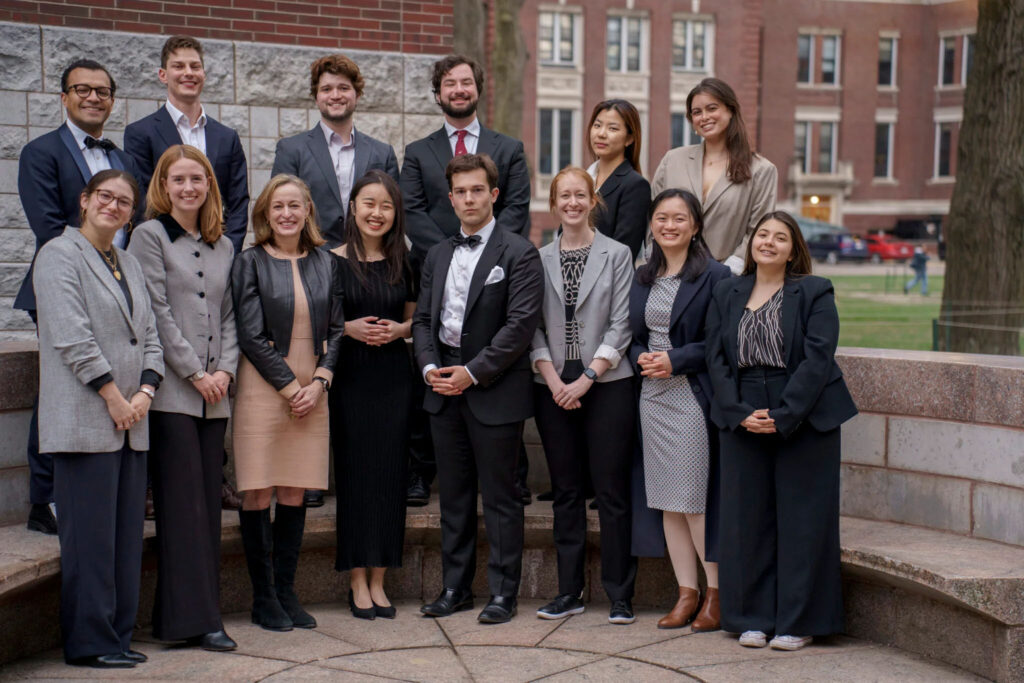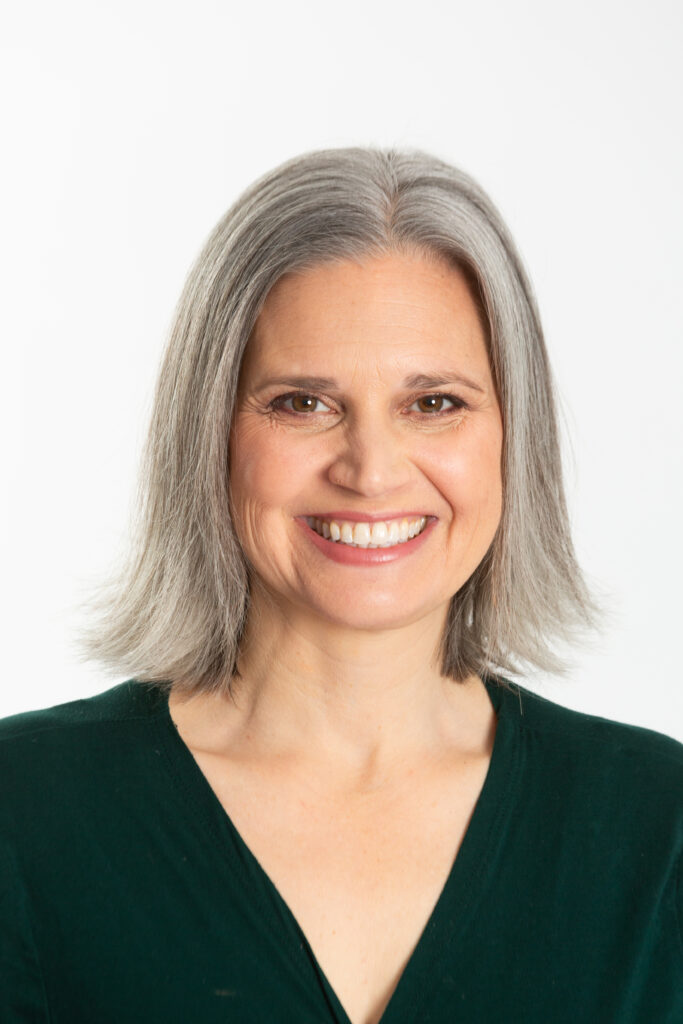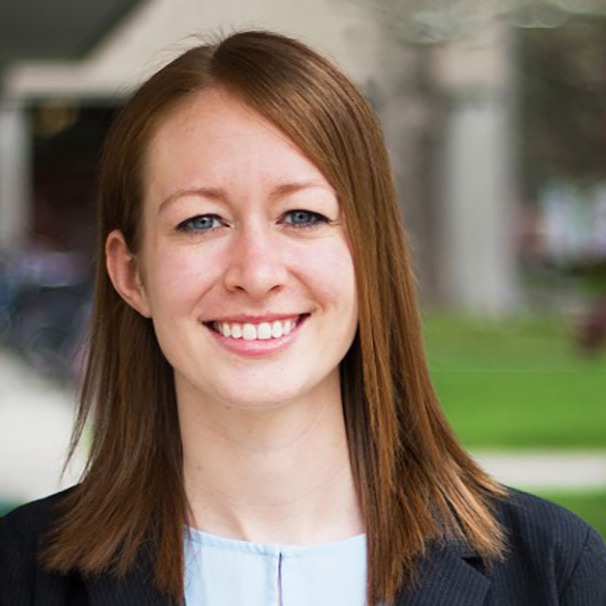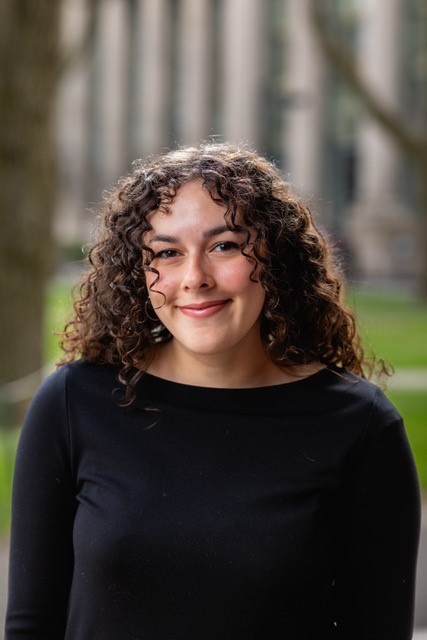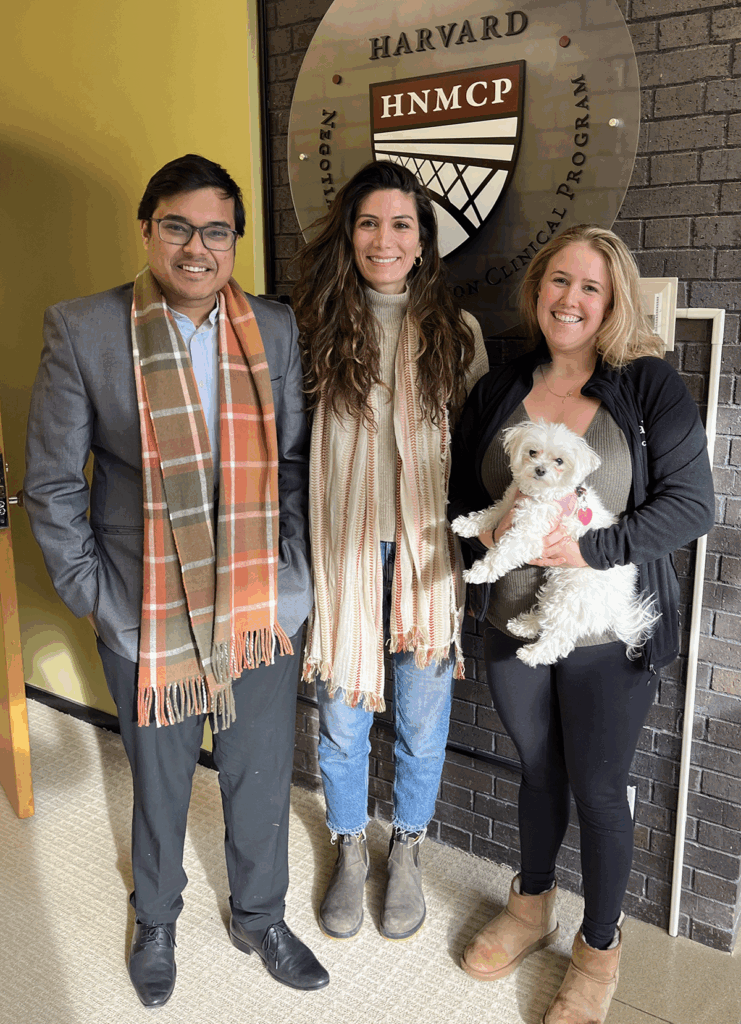
What really got to me was discovering that seed exchange is actually this quiet form of peacebuilding that’s been happening all along. I mean, in Somalia, when people share seeds, they’re not just exchanging farming inputs. They’re maintaining trust between groups, they’re keeping women’s knowledge and autonomy alive, they’re literally weaving the social bonds
that help communities survive conflict.
~Lynn Monzer
Tanishk Goyal, Lynn Monzer, Abby Elder
Access to indigenous seeds and freedom to share, trade, and distribute not only increases agricultural and economic security—thus reducing factors that lead to conflict—but also increases social ties within and across communities. Restricting the ability of individuals and communities to save, trade, and sell indigenous seeds can reduce biodiversity, diminish community and socio-cultural connections, and increase the economic instability and risk of violence. These were some of the crucial findings spring 2025 Dispute Systems Design Clinic students Abby Elder ’25, Tanishk Goyak LL.M ’25, and Lynn Monzer MPA ’25 identified in their groundbreaking report, Strengthening Somalia’s Seed Sector. This project was completed at the request of the United Nations International Organization for Migration (IOM) Somalia’s Environmental Peacebuilding
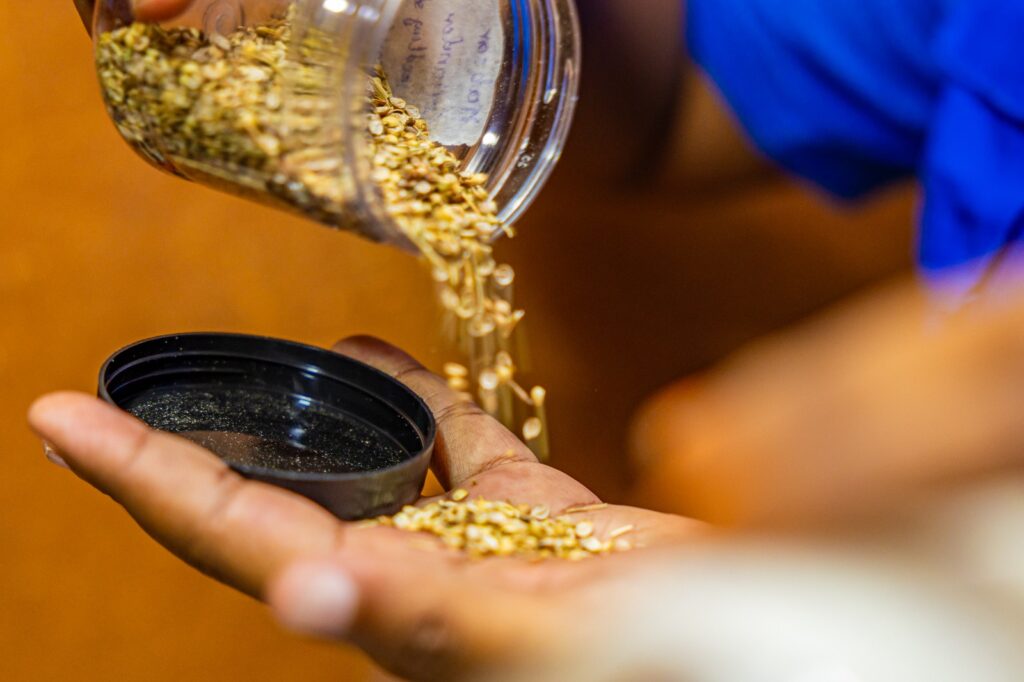
Team’s Community Stabilization Unit and in collaboration with the City University of Mogadishu and the Heritage Institute. As some countries in the region are implementing or considering restrictions on seeds that promote the use of genetically modified foreign seeds—often which have a terminator gene that prevents plants from producing seeds that can be grown the following year—this project was a timely endeavor to understand the impacts that such laws would have on conflict and seed systems in Somalia.
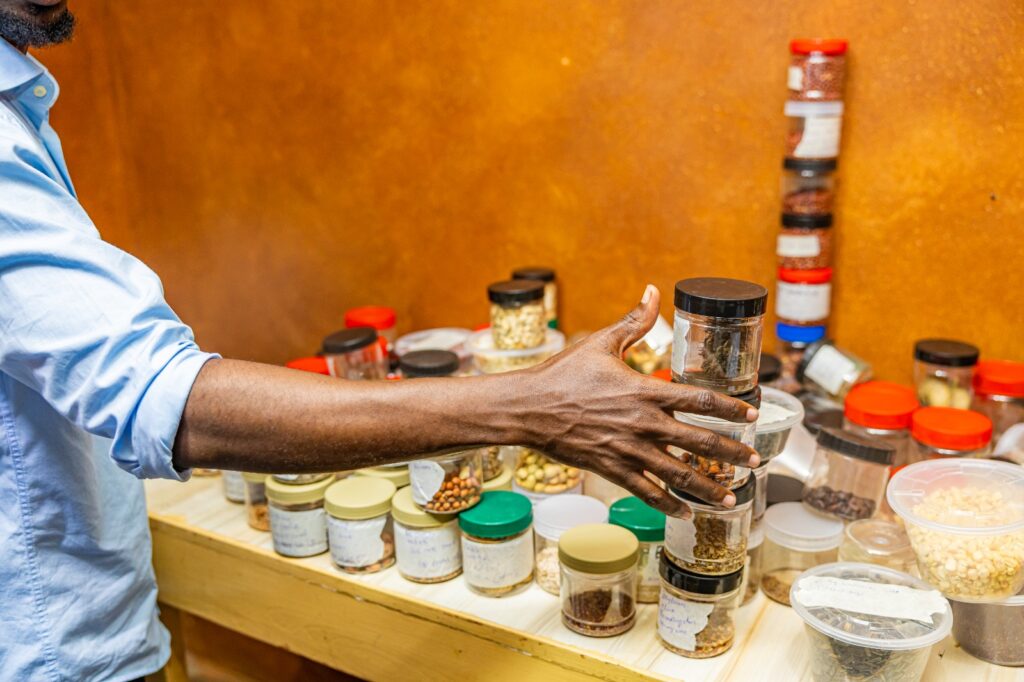
To complete this client work, the student team conducted interviews with stakeholders and experts including government agencies, international organizations and development agencies, NGOs and civil society actors from Somalia and Kenya, academic and research institutions, and field-based practitioners. This stakeholder engagement was both grounded in and supplemented by in-depth research into laws and policies on seed access and distribution, as well as academic and practice-based studies on environmental conflict and seed access and distribution. The team engaged in a conflict analysis to identify the root cause and triggers associated with disputes over seed access and biodiversity, with particular attention given to the
implications of replacing indigenous seeds with hybrids in fragile, agro-pastoral communities. To visualize this analysis, they developed a stakeholder map of the network of actors involved in Somalia’s seed sector, including power dynamics and potential sources of tension. From this work, the students co-designed recommendations with UN IOM’s team and partner organizations to inform laws and policies in Somalia related to seed access and distribution.
When we first mapped Somalia’s seed access system, the sheer scale of challenges we faced felt overwhelming. However, when we took it one day at a time, we learnt that at the heart of every successful dispute systems design, there lies conversation. And if conversations are indeed central to designing successful systems, we perhaps need to: have the courage to initiate difficult conversations; have the patience to wait for the right time for the right conversations; and relentlessly pursue our conversations until the system begins to reveal itself. Most importantly, we learnt that if successful disputes systems designs are a consequence of conversations, conversations themselves are a function of people. Dispute systems are built and exist around people. Be fearlessly curious about them, their work, and their lives, and you will find in those dialogues the ingredients to design a system that works!
~Tanishk Goyal
The final report was presented in Mogadishu by UN IOM, the City University of Mogadishu, and the Heritage Institute at an event hosted by Somalia’s Minister of Agriculture and attended by over 70 participants, including from the Somali government and seed companies. During the event, multiple members of the government and seed sector made public commitments to preserve indigenous seeds and seed practices, marking a positive departure from regional trends towards restriction. The report launch aligned with the opening of Somalia’s first National Seed Bank, in which indigenous seeds will be preserved, shared, and celebrated. Drivers of conflict take many forms, and climate change presents new challenges for agricultural and economic security. But local biodiversity, strong community ties, and resilient indigenous seeds can serve as a stabilizing factor when protected by law, not threatened by it.
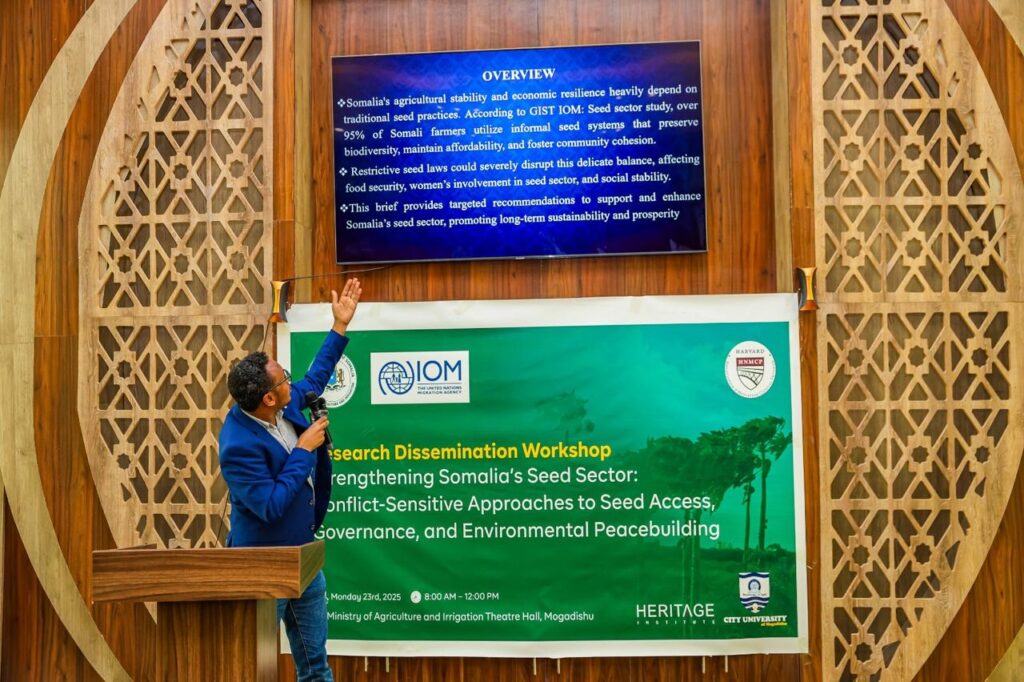
I think I am most proud of the real impact that we have had, in helping support the work of UN IOM Somalia and its local partners, and centering the importance of indigenous seed practices and seed saving for both protecting against the impacts of climate change, preserving biodiversity, and protecting the cultural food plate of Somalia.
~ Abby Elder
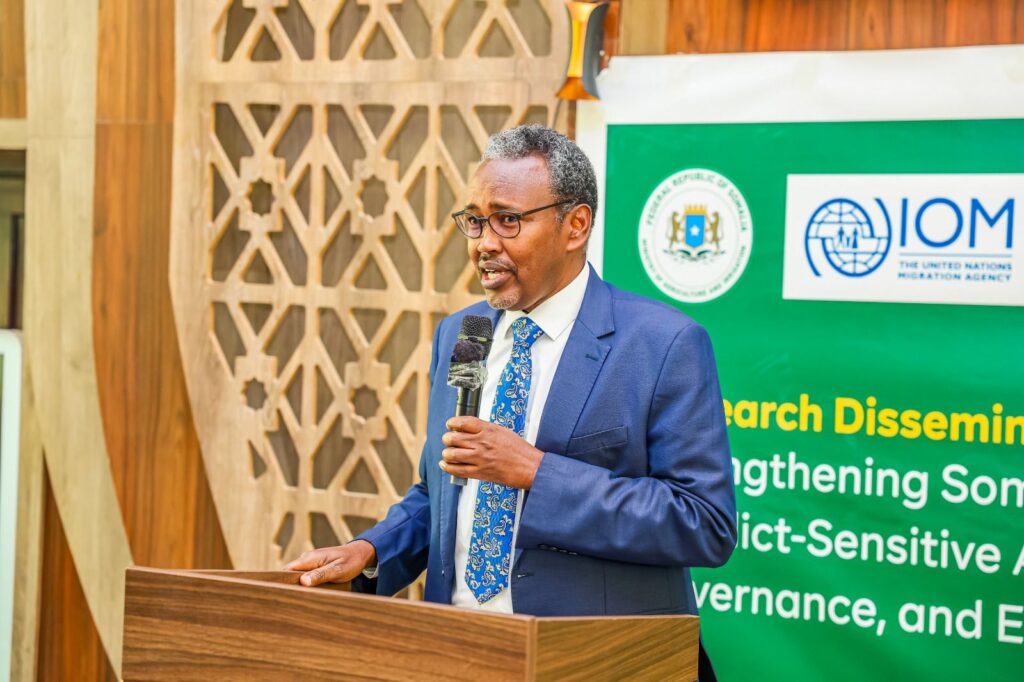
“Our team refused to take the easy route,” added Lynn Monzer. “You know how international projects usually go: everyone defaults to what the donors want to hear or just copies whatever worked elsewhere. But we kept our focus on what actually matters on the ground: What does seed saving really mean for a woman trying to maintain some independence? How does seed exchange hold societal groups together? What does it look like when communities are building resilience from the inside out? But honestly, what surprised me most was watching our work spark something bigger. We ended up catalyzing this whole national conversation in Somalia about protecting indigenous seeds. And that conversation meant that people who never get invited to these discussions suddenly had their voices heard.”
Reflecting on what made the clinic project so impactful, Elder added, “It was an honor to work with my teammates and Clinical Instructor on this important project. I felt like I was constantly learning from my teammates, supervisor, and our client. As a team, our various student backgrounds and strengths complimented each other, and we were all so committed to trying to support our client in the most useful way possible. It felt like an entire new sector of peacebuilding work opened up to me being a part of this project, and I am committed to continuing to learn and contribute to thinking about how conflict resolution and environmental peacebuilding can intertwine throughout my work going forward.”
“I’m proud of so many pieces of this work,” agreed Monzer. “Our incredible partners at UN IOM and our “dream team” (and I mean that, truly magical). But what I’m most proud of is how this work completely opened my eyes to how much we miss when we don’t pay attention to the everyday practices that quietly hold communities together. And once you see this, you can’t unsee how easily the wrong policy could tear all of that apart. Environmental peacebuilding is becoming more and more important, especially as the effects caused by climate change increase. I had not yet had the opportunity to work on a project centered around environmental peacebuilding, so it was an incredible learning experience to understand how UN IOM Somalia approaches peacebuilding through the lens of sustainability and environmental protection. Furthermore, it was such an incredible experience to dive deeply into the new topic of seed saving and sustainable agriculture. Somalia is one of the smallest contributors to climate change but one of the most impacted countries in the world. It was an honor to learn about how Somalia is navigating this challenge and to help UN IOM Somalia with their variety of projects to help support Somalia.
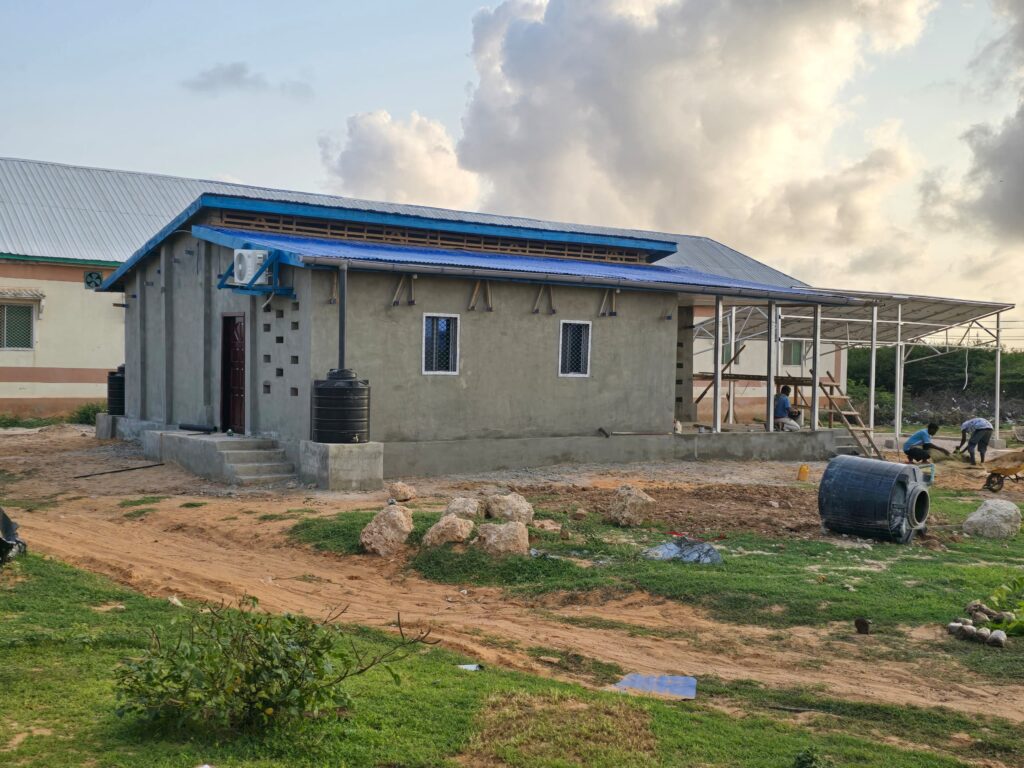
I am proud that our work catalysed a national conversation in Somalia on preserving indigenous seeds. This was a long overdue conversation that, to our knowledge, had never before been held in such a public forum. The fact that the conversation happened vindicated the rights of so many stakeholders, who were otherwise not in a position to even lay their claims to the prevailing narrative in Somalia. I am particularly proud of how the impact of our work has transcended the life of our semester at Harvard and we contributed to the making of a system that will hopefully outlast us. Most importantly, I am proud of how our partnership with the UN IOM was rooted in a shared trust for each other’s expertise and instincts. We knew how to tell a story and how to influence change; UN IOM had the means to breathe life into our story and execute the changes we suggested. But most of all, I am proud that I got to do this with my “dream team” and that we did this together with enthusiasm and purpose.
~ Tanishk Goyal
Captions:
Image 1: Dispute Systems Design Clinic Students Tanishk Goyak LL.M ’25,Abby Elder ’25, and Lynn Monzer MPA ’25
Image 2: Seeds at the Climate Resilience & Peacebuilding Hub / Seed Bank
Image 3: Seeds at the Climate Resilience & Peacebuilding Hub / Seed Bank
Image 4: Launch Event in Mogadishu for Strengthening Somalia’s Seed Sector report
Image 5: Professor Abdulkareem Hassan Jama, Executive Vice President & Provost of City University of Mogadishu at the Launch Even for Strengthening Somalia’s Seed Sector report
Image 6: Opening of the new Climate Resilience & Peacebuilding Hub / Seed Bank in Somalia, promoting access and distribution of indigenous seeds

